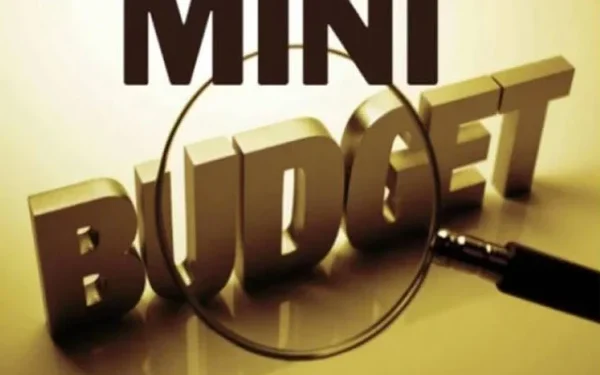Islamabad – In a significant development ahead of the final approval of the national budget for the fiscal year 2025–26, the Government of Pakistan has introduced a mini budget worth Rs36 billion, proposing additional fiscal measures to address pressing economic demands and fulfill certain financial obligations. These include salary increases for government employees and adjustments to tax exemptions on solar energy products.
The Federal Board of Revenue (FBR) presented the new mini budget proposal during the National Assembly Finance Committee meeting, chaired by Federal Minister for Commerce and Investment, Syed Naveed Qamar. The mini budget is being positioned as a pre-emptive strategy to streamline revenue collection without hindering trade and business activity.
Key Components of the Mini Budget
Rs10 Excise Duty on Day-Old Chicks
One of the most controversial aspects of the proposed mini budget is the introduction of a Federal Excise Duty (FED) of Rs10 on each day-old chick. The government has proposed an amendment to the Federal Excise Act to implement this measure. The aim is to broaden the tax base and raise additional funds, though this move has already attracted criticism from poultry sector stakeholders, who fear that the new tax could raise input costs and disrupt the supply chain of poultry farming.
Interestingly, the International Monetary Fund (IMF) has rejected the proposal to impose this specific tax, citing potential distortions in the agricultural and food sectors. Despite the rejection, the government included it in its internal proposals as part of a wider effort to plug revenue shortfalls.
Tax Adjustments for Solar Panels
Another major component of the mini budget involves changes in the sales tax regime for solar panels. The FBR has proposed to reduce sales tax on solar panels, acknowledging the critical role renewable energy plays in meeting the country’s long-term energy sustainability goals. The reduction in taxes is also expected to encourage greater adoption of solar energy systems, especially among residential and commercial consumers struggling with high electricity tariffs.
The tax relief on solar panels is seen as a balancing move to offset the impact of new taxation measures elsewhere in the budget.
Funding for Government Employee Salary Increase
A substantial portion of the Rs36 billion fiscal package will go toward financing the 10 percent salary hike for federal government employees. The government had previously announced this increment to provide relief against inflation, and now seeks additional revenue sources to honor this commitment.
With inflation still above 20% on an annual basis, the salary increase has become politically necessary, especially amid increasing public sector dissatisfaction. The new revenue collected through the mini budget will be earmarked for this purpose, according to the FBR chairman.
Rs462 Billion in Broader Taxation Measures Already Approved
In addition to the Rs36 billion in mini budget proposals, the government has already approved Rs462 billion worth of new taxes under the broader budget framework for FY 2025–26. These taxes include:
- Higher tax rates on company investments in mutual funds
- Increased taxation on income from government securities
- Rising taxes on luxury goods and real estate investments
These measures are part of Pakistan’s commitment to meet IMF benchmarks as part of the Extended Fund Facility (EFF) and future bailout talks.
Relaxation for Non-Filers with Specific Conditions
Perhaps one of the most talked-about elements in the new fiscal proposals is the partial relaxation of restrictions on non-filers of income tax. In an earlier proposal, the government had suggested strict limitations on non-filers, barring them from purchasing:
- Vehicles
- Plots
- Houses
- Stock market securities
- Opening new bank accounts
However, the latest version of the mini budget introduces conditional relaxations, with certain upper limits:
| Category | Relaxation Limit |
|---|---|
| Vehicles | Only below Rs7 million |
| Residential plots/houses | Only under Rs50 million |
| Commercial plots | Only under Rs100 million |
| Stock market investments | Annual investment capped at Rs50 million |
These revisions aim to ease pressure on the real estate and automobile sectors, which had expressed serious concerns about the negative economic impact of blanket restrictions on non-filers.
Committee Approvals and Legislative Process
The National Assembly’s Finance Committee has given its approval to the new fiscal measures, though opposition lawmakers have called for greater transparency and impact assessment. The proposed mini budget will be formally integrated into the overall budget plan and passed as part of the Finance Bill 2025–26, pending final approval from both houses of Parliament.
The FBR has reiterated that these measures are in line with Pakistan’s commitment to fiscal consolidation and its strategy to reduce reliance on external borrowing.
Political and Economic Reactions
Mixed Reactions from Business Community
The proposed mini budget has received a mixed response from the business community. While renewable energy businesses welcomed the reduction in solar panel taxes, poultry industry representatives criticized the Rs10 duty on chicks, calling it regressive and harmful to small-scale farmers.
Real estate developers and stock market investors expressed cautious optimism over the relaxation of non-filer restrictions, though many still argue for deeper structural reforms rather than piecemeal amendments.
Opposition Questions Government’s Priorities
Opposition lawmakers have criticized the mini budget as being regressive and inflationary, especially amid rising utility prices and food costs. Some parliamentarians accused the government of overburdening the middle class while not doing enough to bring wealthy tax evaders into the tax net.
IMF Oversight and Loan Program Compliance
The government’s fiscal tightening comes under the scrutiny of the International Monetary Fund, which has laid out strict guidelines for tax collection, subsidy reduction, and budget transparency. The IMF is expected to conduct a detailed review of the fiscal consolidation efforts, including the mini budget, before the next tranche of financial assistance is approved.
A senior Finance Ministry official said that the Rs36 billion mini budget is part of efforts to align budgetary goals with IMF performance benchmarks, especially regarding the primary fiscal deficit and tax-to-GDP ratio.
Conclusion: A Tense Balancing Act
Pakistan’s mini budget of Rs36 billion reflects the government’s struggle to balance economic reform, public welfare, and international obligations. As the country grapples with economic slowdown, currency depreciation, and high inflation, these additional fiscal measures are seen as crucial for avoiding default, securing IMF funding, and sustaining essential government functions.
The next few weeks will be pivotal as the Parliament deliberates on the broader budget and the mini budget simultaneously. Stakeholders from all sectors—agriculture, industry, finance, and public services—are watching closely to see how these policies impact their operations, profits, and everyday costs.

























